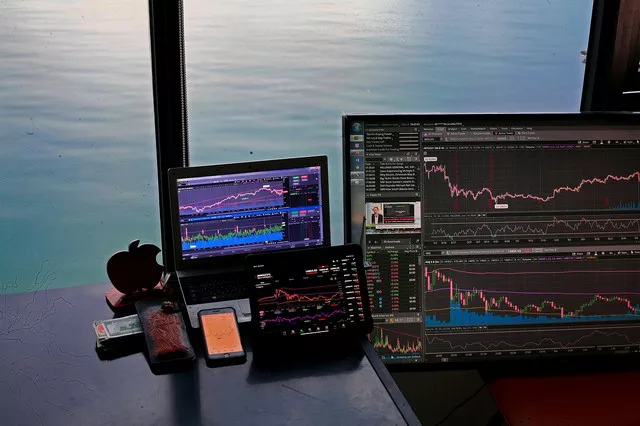In the world of finance and investing, futures stand as a versatile and powerful instrument that has attracted both novice and seasoned traders alike. The concept of trading futures has been around for centuries, but it continues to play a significant role in modern financial markets.
Understanding Futures
Before delving into the reasons for trading futures, it is essential to have a fundamental understanding of what futures contracts are. Futures are standardized financial contracts that obligate the buyer to purchase, and the seller to deliver, a specific quantity of a particular asset (such as commodities, currencies, or financial instruments) at a predetermined future date and price. These contracts are actively traded on organized exchanges and are known for their versatility and liquidity.
Risk Management and Hedging
One of the primary reasons individuals and businesses engage in futures trading is to manage risk and hedge against price fluctuations. Futures contracts serve as valuable tools for mitigating the impact of adverse price movements in various markets. For instance, agricultural producers can use futures contracts to lock in prices for their crops, protecting them from the uncertainty of future market fluctuations. Similarly, companies with exposure to foreign exchange risk can use currency futures to hedge against adverse currency movements.
Leverage and Capital Efficiency
Trading futures offers traders the potential for substantial leverage, allowing them to control a large position with a relatively small amount of capital. This leverage can amplify both gains and losses, making futures an attractive option for those seeking to maximize returns. However, it is crucial to use leverage cautiously, as it also carries higher risks.
Diversification
Futures markets encompass a wide range of asset classes, including commodities, stock indices, interest rates, and currencies. This diversity provides traders with ample opportunities to diversify their portfolios and spread risk across various markets. Diversification can help reduce the impact of adverse movements in a single asset class and potentially enhance overall portfolio performance.
Liquidity
Futures markets are known for their high liquidity, which ensures that traders can easily enter and exit positions without significant price slippage. This liquidity is a result of the active participation of institutional investors, speculators, and hedgers. The ability to trade in liquid markets enhances a trader’s flexibility and reduces the risk associated with illiquid assets.
Price Discovery
Futures markets play a crucial role in price discovery, as they reflect the collective consensus of market participants about the future value of an underlying asset. These markets incorporate a vast amount of information and sentiment, making them reliable indicators of supply and demand dynamics. For this reason, futures prices are often used as benchmarks in various industries and are closely monitored by analysts and policymakers.
Speculation
While hedgers use futures contracts to manage risk, speculators are drawn to futures markets for the profit potential they offer. Speculative trading involves making bets on the future price movements of assets without the intention of taking physical delivery of the underlying asset. Speculators use various strategies, including technical analysis and fundamental analysis, to anticipate price changes and capitalize on market fluctuations.
Accessibility
Trading futures is more accessible today than ever before, thanks to advances in technology and the availability of online trading platforms. Individuals can now access futures markets from the comfort of their homes or offices, making it easier for retail traders to participate alongside institutional investors.
Around-the-Clock Trading
Futures markets operate virtually around the clock, providing traders with the flexibility to respond to global economic events and news releases at any time. This continuous trading allows for quick reactions to market developments and the ability to execute trades when opportunities arise.
Tax Benefits
In some jurisdictions, futures trading may offer tax advantages. For example, in the United States, futures gains may be subject to lower tax rates and favorable treatment compared to gains from other financial instruments. Traders should consult with tax professionals to understand the specific tax implications in their region.
Portfolio Management
Futures can be an integral part of a well-structured investment portfolio. By incorporating futures contracts into a broader asset allocation strategy, investors can fine-tune their exposure to different markets and asset classes. This dynamic approach enables portfolio managers to adapt to changing market conditions and optimize returns.
Conclusion
Trading futures represents a dynamic and multifaceted endeavor that appeals to a wide range of market participants. Whether you are a hedger looking to protect against price volatility, a speculator seeking profit opportunities, or an investor looking to diversify your portfolio, futures markets offer a wealth of benefits. The versatility, liquidity, and potential for capital efficiency make futures an essential tool in modern finance.
However, it is crucial to approach futures trading with a clear understanding of the associated risks. Leverage, price volatility, and the complexity of derivatives markets require traders to educate themselves thoroughly, develop sound risk management strategies, and exercise discipline in their trading practices. With the right knowledge and approach, futures trading can be a valuable addition to your investment toolbox, offering opportunities for growth and risk management in an ever-evolving financial landscape.


